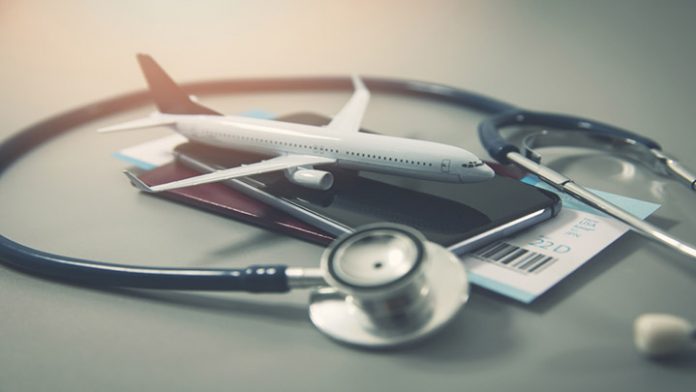COVID-19 is here to stay, for some considerable time. Around the globe, those involved in medical travel are having to respond to the impact that COVID-19 is having on their international patient business. For some, it may be the end of their venture into medical travel. Others are embarking on the long road to recovery.
Market leaders are hit hard
For some hospitals that have, historically, been leading the way in medical tourism, the impact of COVID-19 is a major threat not just to their international patient flow but to the viability of their overall healthcare business. Bumrungrad Hospital in Bangkok, Thailand has long been one of the frontrunners in serving international patients. More than 50% of its patients come from overseas. Two thirds of the hospital’s revenue comes from non-Thai patients. However, tourism arrivals to Thailand fell by 76% in March; Thailand’s borders are closed as part of a state-of-emergency order that will last, at least, until the end of May. As a result, international patient admissions to Bumrungrad have plummeted.
Bumrungrad is responding to the crisis by promoting its telemedicine and teleconsultation activities. It’s also offering residential programmes for those patients who are required to isolate or quarantine.
But the longer term threat to the business is significant. Many stock market analysts are recommending “Sell” and the hospital is subject to a takeover bid by Bangkok Dusit Medical Services. 2020 could see major changes at Bumrungrad.
India… a long road to recovery
It’s a similar story elsewhere. India’s medical tourism business has come to a halt. eExpedise Healthcare, a medical tourism facilitator, is faced with the challenge of over 300 clients who have undergone treatment in Apollo’s hospitals and are now marooned in Delhi following India’s lockdown. The patients are having to bear significant costs for accommodation and subsistence to fund their extended stay and have little idea of when they may be able to return to their home country.
Another Indian medical travel agency, Global Care, would normally facilitate over 500 patients every month. Now, the patient flow has dried up and the company says it is chasing over US$1 million of outstanding payments from struggling Indian hospital providers.
The Indian hospital group, Max Healthcare, estimates its loss of revenue from foreign patients at around US$5 million per month. According to another facilitator, Magnus Medi, Indian banks are unwilling to help cash strapped medical travel businesses and are viewing them as a high risk for loan support.
At some point, the restrictions regarding international travel will be loosened. We will see COVID-19 surveillance at airports and at borders, and travel and tourism will slowly recover. But for some countries, such as India, their traditional source markets may become the hotbed of COVID-19. Africa, and Central Asia are still in the early stages of the pandemic. We have yet to see how fast the virus will spread in these regions and the restrictions that will be placed on travel.
So, the destination may return to some semblance of normality, but patient flow from its key source markets may be severely restricted.
Africa… does the pandemic mean more hospitals?
Long term, the impact of the pandemic may speed up the drive to improve healthcare services in underdeveloped countries, thus reducing the outbound flow of patients. Ghana has announced plans to create 90 new hospitals in the wake of the outbreak, assuming, of course, that it can generate the finance to pay for them. Nigeria has been one of the biggest spenders in terms of government investment in overseas treatment. Will COVID-19 finally drive the government to rethink its strategy and drive investment in healthcare at home?
Will certification and accreditation see growth?
Post COVID-19, medical travellers will become more selective in both the destinations and the hospitals that they choose for their treatment. “Will it be safe?” is one of the key questions that guides the decision making of all medical travellers. Post COVID-19, the emphasis on patient safety will become even greater. Patients will be seeking destinations, hospitals and clinics that are “COVID safe”.
So, it’s not surprising that those involved in certifying and approving providers have moved rapidly to provide a solution. The Germany based, Temos International, has introduced a new “Certificate of Compliance: COVID-19 Safe” programme for hospitals and clinics. The programme encourages healthcare providers to review protocols for the management of infectious diseases, as well as the organisation’s preparedness and response plan to COVID-19.
The “new normal” for medical travel
COVID-19 has changed the world in which we live. It will drive the transformation of many industries and market sectors. We’ve seen the market for medical travel disappear, almost overnight. We may have to endure a very long wait before the sector returns to anything like normality. And the “new normal” for medical travel may be very different to what went before.








 ©2024 All rights reserved LaingBuisson
©2024 All rights reserved LaingBuisson 


